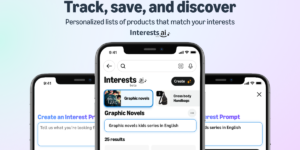Tech Investor Predicts AI Will Impact These Two Jobs

The Impact of AI on Employment: Insights from Investor Victor Lazarte
In recent discussions about artificial intelligence (AI), one venture capital investor has expressed skepticism about the optimistic narratives that suggest AI will simply enhance workers rather than replace them. Victor Lazarte, a general partner at Benchmark, a well-known venture capital firm, voiced his concerns during a podcast interview, labeling the corporate narrative around AI as misleading.
AI: Replacement vs. Augmentation?
Lazarte does not hold back in his critique. He challenges the claim that AI merely augments human workers, stating emphatically, "This is bullshit. It’s fully replacing people." According to him, the fear is particularly pronounced in the fields of law and recruitment. Lazarte urges law students to consider the skills that might remain relevant for them in three years, asserting that there will likely be very few as AI capabilities continue to advance.
In the legal sector, many entry-level lawyers currently handle basic tasks, which are likely to be automated by AI. This shift could fundamentally alter the role of young attorneys and how legal work is structured.
The Transformation of Legal and Recruitment Industries
Evolving Role of Lawyers
The ongoing evolution of the legal profession brought concerns from industry insiders. At a recent legal tech conference, Todd Itami, a prominent employment lawyer, warned that many lawyers are lagging behind in adopting AI technologies. He stressed that understanding and utilizing AI is crucial for lawyers’ future success in a rapidly changing landscape.
Disruption in Recruitment
Similarly, the recruitment industry is witnessing significant change. AI startups are emerging to automate parts of the hiring process, aiming to reduce costs and improve efficiencies. For instance, OptimHire, an AI-driven startup, recently secured $5 million in funding and boasts that its AI system can streamline sourcing candidates, conducting interviews, and scheduling meetings for hiring managers. This kind of technology promises to save time and reduce frustrations typically associated with the hiring process.
With HR teams increasingly adopting AI tools, they can expect their workloads to de-stress, gaining valuable insights while helping job seekers find more suitable positions.
The Future of Companies in an AI-Driven World
While Lazarte acknowledges that AI could result in job losses, he also sees substantial potential for companies to thrive. He believes that AI’s ability to cut operational costs while significantly boosting productivity will lead to the creation of smaller yet highly profitable companies. As Lazarte notes, companies worth trillions could very well be run by tiny teams, allowing business owners and shareholders to accumulate immense wealth.
However, he cautions against the potential consequences of ultra-lean, AI-powered businesses. While AI could create substantial economic value, it might also worsen social inequality. As businesses become increasingly efficient, this shift could strip away many jobs, leading to economic disparities.
AI’s Broader Influence
Lazarte posits that the impact of AI will extend beyond just the workplace. He foresees a future where AI might provide individuals with constant guidance—potentially leading to a society where people are heavily reliant on technology for daily decision-making. He remarked, "Pretty soon we’re going to have an app that just tells us what to do all day — and we’re going to love it."
Overall, Lazarte’s insights present a complicated picture of AI’s integration into our professional lives, sparking essential conversations about its effects on various industries, job roles, and society at large.






